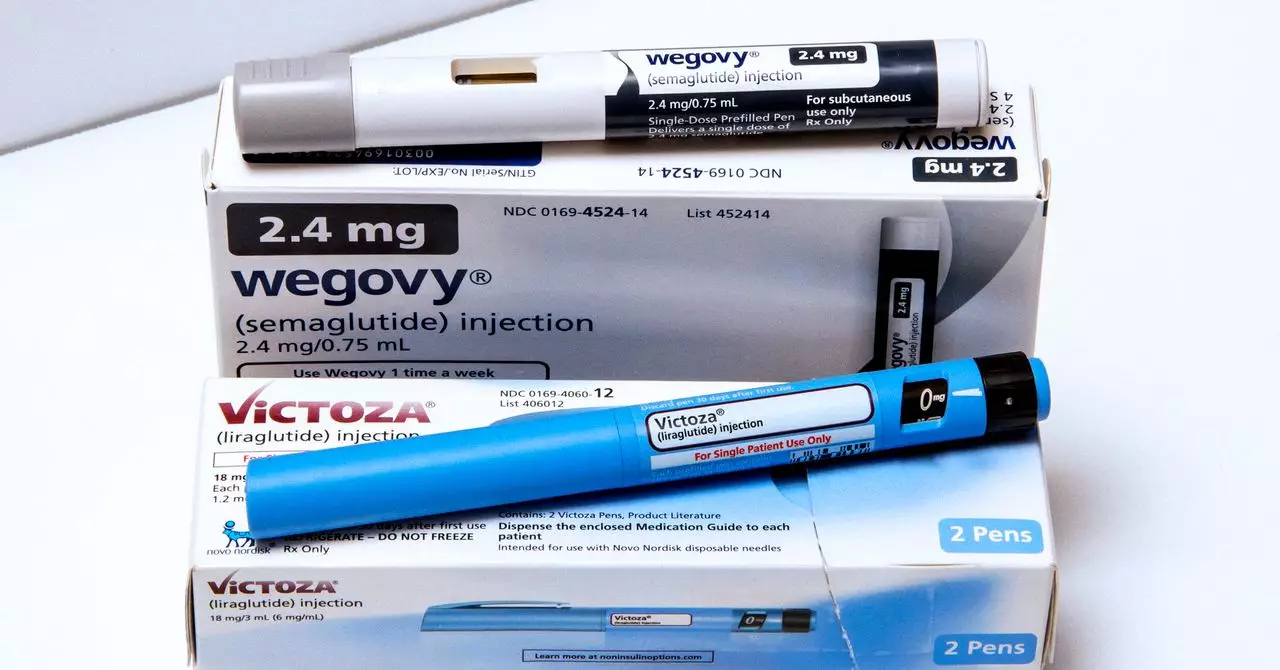The healthcare industry is witnessing remarkable shifts, particularly in the domain of telehealth. As startups navigate the murky waters of patent law, they’re forced to pivot from blockbuster drugs to alternatives that are less recognized but still effective. Recently, the FDA’s decision to halt the sale of compounded versions of cutting-edge GLP-1 medications has created a vacuum that many online clinics are looking to fill. Enter liraglutide—a medication that has been overlooked amid the glitz of newer, more popular products like Ozempic and Zepbound. This once overshadowed drug is now stepping into the limelight, reviving interest in its potential — not just as a treatment for obesity but also as a solution for managing type 2 diabetes.
The Re-Entry of Liraglutide
Liraglutide, originally marketed under brands like Saxenda and Victoza, has been around since 2010. While many might argue its mechanism lacks the finesse of its younger counterparts, it remains a formidable tool in the arsenal against obesity. As telehealth companies like Hims scramble to diversify their offerings, liraglutide has emerged as a viable substitute, even though it brings its own set of challenges. With daily injections compared to the weekly ease of newer alternatives, doctors and patients must weigh the convenience against potential efficacy and side effects.
Despite its past, liraglutide is regaining traction. The drug mimics the function of GLP-1, a hormone responsible for appetite suppression and insulin regulation. However, it faces significant hurdles—its relative ineffectiveness compared to newer drugs and the possibility of more severe side effects are critical points for consideration. Nevertheless, as pharmaceutical companies continue to innovate, the adoption of liraglutide by clinics illustrates a significant shift in strategy.
Market Dynamics and Patient Options
The decision by the FDA to declare that high-demand GLP-1 medications like Ozempic and Zepbound are no longer in shortage has sent ripples through the telehealth market. Clinics that once thrived on the availability of compounded versions of these drugs are now exploring the less trendy but still relevant liraglutide. As Joshua Fritzler of Olympia Pharmaceuticals aptly points out, they are prepared to treat liraglutide “kind of the same way” they approached newer options, implying adaptability in production methodologies and an eagerness to meet the new demand.
As healthcare consumers, the options can be overwhelming. Patients may find themselves grappling with the benefits of liraglutide versus its more fashionable counterparts. With online clinics putting an emphasis on affordability, many are now more accessible to people who would previously have been priced out of treatment. For those who find the injections inconvenient, however, weighing the pros and cons can seem daunting. In an era where instant gratification is often prioritized, the idea of a daily injection might deter many potential users, regardless of the long-term benefits.
Regulatory Challenges and Ethical Considerations
As the market for weight-loss solutions expands, ethical questions arise. Compounding pharmacies are now tapping into the demand for liraglutide amid ongoing scrutiny over their methods. The idea of customizing doses and adding vitamins sounds appealing, but it also raises concerns regarding the integrity of these compounded drugs. Companies like Eli Lilly are already moving swiftly to protect their patents, signaling a potential legal battle that could further complicate availability for patients. The pharmaceutical landscape is becoming increasingly complex; can we ensure that the need for expediency doesn’t come at the cost of patient safety? The answer isn’t clear.
In navigating these challenges, telehealth companies must prioritize ethical practices while ensuring that patients receive effective treatment. As liraglutide makes a comeback, it offers hope to many struggling with weight management and diabetes. However, the path ahead is fraught with regulatory and ethical hurdles that deserve serious attention. Striking a balance between accessibility and accountability should be the guiding principle as this industry continues to evolve.
The rise of liraglutide amid these challenges illustrates a critical turning point in the industry’s approach to obesity and diabetes treatment. It beckons the question: what do we value in our healthcare solutions—newness, effectiveness, or ethical delivery? The answers will shape the telehealth landscape for years to come.

